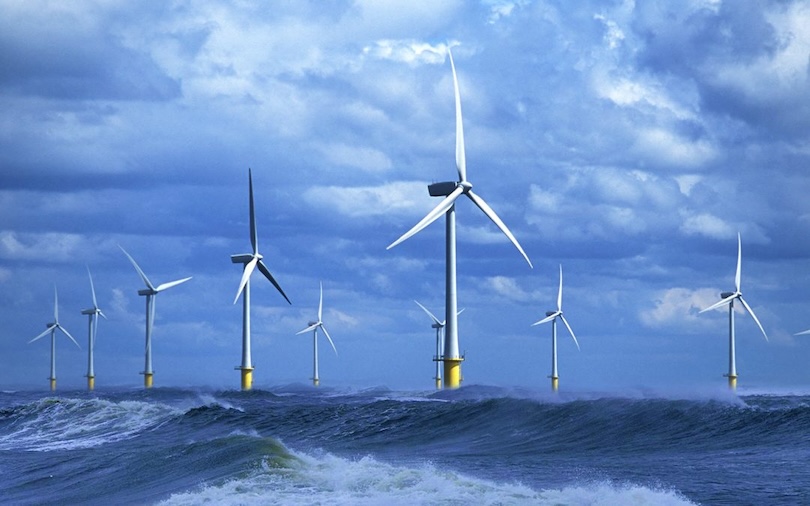In the offshore renewables energy, offshore wind farms stand as beacons of sustainable progress. Operating in the dynamic and challenging offshore environment requires specialised skills and safety measures to ensure smooth operations and protect workers’ well-being. This is where Global Wind Organisation (GWO) training comes into play, serving as a cornerstone in the development of a skilled and safe workforce for the offshore renewable energy industry.
Understanding GWO Training for Offshore Renewables
Global Wind Organisation, commonly referred to as GWO, is a non-profit body that sets the standards for safety training and certification in the offshore renewables and wind energy sector. Established by leading wind turbine manufacturers and operators, GWO aims to harmonise safety training across the industry, ensuring that workers possess the necessary skills and knowledge to perform their duties safely and efficiently.
GWO training encompasses a range of modules designed to address the specific hazards and challenges encountered in the wind energy sector, with a focus on offshore renewables used installations. These modules cover essential aspects such as working at heights, manual handling, fire awareness, first aid, and sea survival, among others. By completing GWO-certified training courses, workers acquire the competencies required to work in various roles within the offshore renewables industry, including installation, maintenance, and operation of wind turbines.

What Does GWO Stand For?
GWO stands for Global Wind Organisation. Founded in 2009, GWO is a collaborative effort between leading companies in the offshore renewables energy sector, committed to establishing standardised safety training and certification for workers across the industry.
Requirements for GWO Training
Participating in GWO training courses typically requires individuals to meet certain prerequisites to ensure they can effectively engage with the material and perform the necessary tasks safely. While specific requirements may vary depending on the training provider and the module being undertaken, common prerequisites in the offshore renewables include:
Physical Fitness: Working in the offshore environment demands a certain level of physical fitness to handle the rigours of the job, including tasks such as climbing turbines and carrying equipment.
Language Proficiency: As GWO training involves both theoretical instruction and practical exercises, participants are often required to have a sufficient understanding of the language in which the course is conducted to comprehend instructions and communicate effectively with instructors and fellow trainees.
Medical Assessment: Given the potentially hazardous nature of offshore work, individuals may need to undergo a medical assessment to ensure they are fit to participate in GWO training and work in the offshore environment safely.
Basic Safety Training: Some GWO modules may have prerequisites, requiring participants to complete basic safety training before undertaking more specialised courses.

Scope of GWO Training
GWO training covers a wide range of topics essential for working safely and effectively in the offshore renewables industry. Let’s explore some of the key modules and their significance:
Working at Heights: Working at heights is an inherent aspect of offshore wind turbine maintenance and installation. This module equips participants with the skills and knowledge to perform tasks safely while working at elevated locations, including proper harness usage, fall prevention, and rescue techniques.
Manual Handling: Manual handling tasks, such as lifting and carrying heavy equipment and components, are common in offshore wind operations. This module focuses on techniques for minimizing the risk of injury and strain associated with manual handling activities.
Fire Awareness: In the event of a fire onboard a wind turbine or support structure, swift and effective response is crucial to minimizing damage and ensuring the safety of personnel. This module covers fire detection, prevention, and response procedures tailored to the offshore environment.
First Aid: Accidents and injuries can occur in any workplace, including offshore wind farms. First aid training provides participants with the skills to administer immediate assistance and potentially save lives in emergency situations until professional medical help arrives.
Sea Survival: Offshore wind farm personnel must be prepared to deal with emergencies such as vessel capsizing or evacuation due to adverse weather conditions. Sea survival training teaches essential techniques for surviving in the water and deploying life-saving equipment.
By completing GWO-certified training courses, individuals not only enhance their employability within the offshore renewables industry but also contribute to a culture of safety and professionalism that underpins sustainable growth and development in the sector.
In conclusion, GWO training plays a vital role in ensuring the safety and efficiency of offshore wind farm operations. By setting standardised safety training and certification requirements, GWO helps to mitigate risks and enhance the capabilities of the workforce, ultimately supporting the continued expansion of offshore renewable energy and the transition to a more sustainable future.
To complete the GWO training will take about 4 days and the certificate will last for 2 years, period after which must be renewed. The total costs of the training are around 1500 Euro, excluding transportation, hotel and meals if you are traveling a training center out of your location.
If this is a good investment, depends on your future career plans and when you decide to make the step into the realm of the offshore renewables.
If you are interested to know more about the safety aspects of the offshore renewables industry follow as well this link to a very interesting article about the main hazards of the wind farms.

Comments
2 responses to “2024 Training Requirements For Offshore Renewables: Exploring GWO”
This comment highlights the frustration of having to pay for multiple certifications in the oil and gas industry, especially when GWO training is required on top of existing credentials. It questions the lack of transferability between certifications and suggests that funding or cross-sector validation could alleviate the burden for workers.
I perfectly understand you, nowadays it is money factory